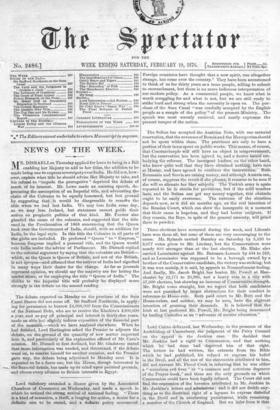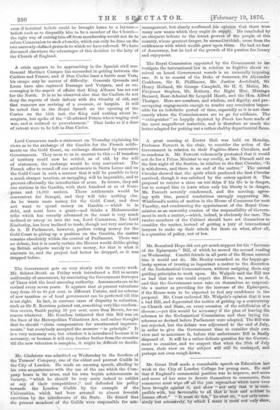Lord Cairns delivered, last Wednesday, in the presence of the
Archbishop of Canterbury, the judgment of the Privy Council on the appeal in the Jenkins case. He decided that Mr. Jenkins had a right to Communion, and that nothing which he had done had deprived him of that right. 'The letters he had written, the extracts from the Bible which he had published, his refusil to express his belief in the Devil, and all the rest of the statements attributed to him, did not warrant Mr. Flavel Cook in inferring that he was either a "notorious evil liver" or "a common and notorious depraver of the Prayer-book," and these are the only grounds on which Communion could have been legally refused. The Court did not find the expression of the heresies attributed to Mr. Jenkins in Mr. Jenkins's letters and admissions ; and it did not decide any- thing as to the doctrinal right of a layman to express disbelief in the Devil and in everlasting punishment, while remaining a member of the Church of England. But we infer from it that
even if heretical beliefs could be brought home to a layman— beliefs such as to disqualify him to be a member of the Church— the right way of cutting him off from membership would not be to refuse Communion to such a heretic, which can only be done on the two narrowly-defined grounds to which we have referred. We have discussed elsewhere the advantages of this decision to the laity of the Church of England.



































 Previous page
Previous page